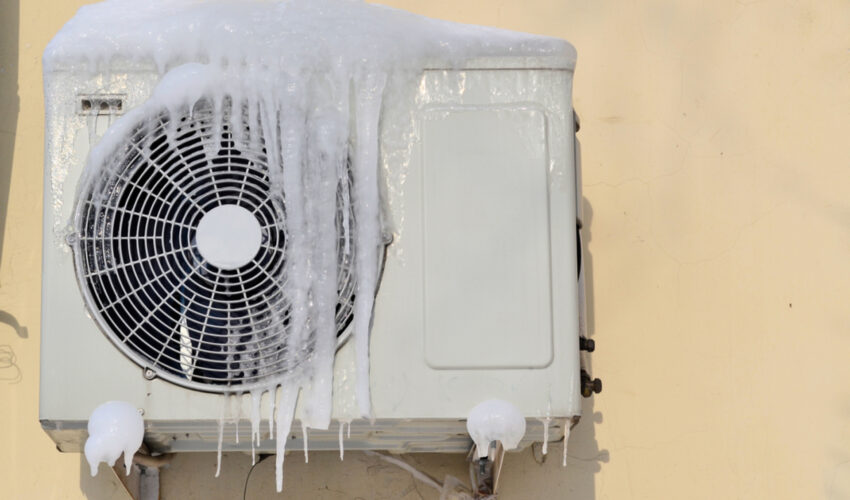The idea of an ice-cold A/C is an appealing one—but when your A/C unit is literally icy, it might no longer produce and circulate cold air through your home. What causes an A/C unit to freeze, and what can you do to get it back into peak operating condition? Below we discuss three of the most common culprits behind an icy A/C unit.
Broken Fan
Your A/C unit produces cold air by blowing warm air across an evaporator coil, cooling the air in the process. This means that if your A/C unit’s fan is broken, the evaporator coil will become too cold; any moisture or condensation that comes into contact with the evaporator will then freeze, preventing it from functioning properly.
Although replacing an A/C unit fan sounds like a relatively simple repair, it’s always a good idea to have an experienced HVAC technician diagnose and fix this issue. Trying to operate a frozen A/C unit can cause serious damage to the unit, so it’s important to ensure that any repair is done quickly and correctly.
Insufficient Air Flow
Many of the most common causes of a frozen A/C unit come down to insufficient air flow. Even if the fan is working as designed, things like a dirty evaporator coil or an obstruction somewhere in the ducting could prevent the evaporator coil from functioning properly.
You can take some steps to prevent insufficient air flow, including:
- Checking, cleaning, and replacing your filters on a regular schedule
- Asking an HVAC technician to check and clean your refrigerant coils while performing periodic unit maintenance
Refrigerant Problems
Your A/C unit’s refrigerant—the chemical that helps it cool the air—operates in a closed system, which means it shouldn’t ever need to be refilled or topped off. If your A/C unit is low on refrigerant, this means there’s a leak somewhere in the system. Low refrigerant levels allow the evaporator coil to get too cold, which freezes the condensation water on the coil.
It’s crucial to detect and repair any refrigerant leaks for a few reasons:
- Unless repaired, the leak will continue to allow refrigerant to escape
- Over time, an unrepaired refrigerant leak may cause irreparable damage to your A/C unit
- Leaking refrigerant can be harmful to the environment
Some A/C units were manufactured before certain federal regulations that restricted the use of specific types of refrigerant. If your A/C unit is more than 10 years old and has a refrigerant leak, it may be more cost-effective to simply replace the unit rather than try to track down a type of refrigerant that is no longer manufactured.
But even if you decide to repair rather than replace your A/C unit, once a refrigerant leak has been repaired and your unit has been serviced, your A/C unit should be ready to provide years of hassle-free service.
Conclusion
When you notice ice on your A/C unit, it’s crucial to turn the unit off and let the ice thaw before checking the unit or calling an HVAC technician. Not only does this make the diagnosis easier, but it also helps avoid further damage to your A/C unit.
Don’t risk damage to your icy A/C unit—contact North East Air Conditioning, Heating & Plumbing to diagnose and repair your A/C unit’s issues. Our experienced technicians can quickly get to the root of your problem and perform the repairs necessary to get your unit up and running again. Give us a call today at (210) 658-0111 or visit our website today to set up an appointment.


